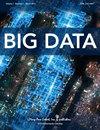人工智能与国家权力
IF 2.6
4区 计算机科学
Q2 COMPUTER SCIENCE, INTERDISCIPLINARY APPLICATIONS
引用次数: 0
摘要
人工智能(AI)越来越无处不在,正在改变我们的日常生活。人们越来越担心,不受监管的人工智能可能导致灾难性的后果,预计人工智能将改善人类的生活。人工智能算法变得越来越复杂,越来越难以理解。超级大国通过监视、面部识别和部署致命的自主武器系统,在国家权力中看到了人工智能的破坏性。这篇综述文章分析了人工智能如何被部署到国家权力中,以加强警务和军事行动。警察和军队部署人工智能提高了行动的卓越性和效率,并提供了模拟训练和预测能力,而不受管制的使用则会引发违反道德和人权的行为。鉴于人工智能的可预见的普遍性和快速发展,需要更多的研究来限制强制性的国家权力。这篇综述文章提高了人们对人工智能的能力的认识,并为约束和伦理和法律问题的新兴文献做出了贡献。它引起了学者、政策制定者和实践者对合作研究的兴趣。随着发展中国家面临基础设施、金融和数字技能壁垒,人工智能将加剧技术鸿沟。本文总结了未来研究的启示。本文章由计算机程序翻译,如有差异,请以英文原文为准。
Artificial Intelligence and State Power
Artificial Intelligence (AI) is increasingly ubiquitous, transforming our everyday lives. AI is expected to improve human life amid growing concerns that unregulated AI could lead to disastrous outcomes. AI algorithms have become complex and more challenging to follow. The disruptive nature of AI is seen in state power through surveillance, facial recognition, and deployment of lethal autonomous weapons systems by superpowers. This review paper analyses how AI is deployed for state power to enhance policing and military operations. AI deployment by the police and army increases operational excellence and efficiency and offers simulated training, and predictive capabilities, while unregulated use raises ethical and human rights violations. Given the foreseeable pervasiveness and rapid AI development, more research is required to restrict coercive state power. This review paper raises awareness of AI's affordances and contributes to emergent literature on constraints and ethical and legal issues. It raises interest among scholars, policymakers, and practitioners for collaborative research. AI will reinforce the technology divide as developing countries face infrastructural, financial and digital skills barriers. The review concludes with future research implications.
求助全文
通过发布文献求助,成功后即可免费获取论文全文。
去求助
来源期刊

Big Data
COMPUTER SCIENCE, INTERDISCIPLINARY APPLICATIONS-COMPUTER SCIENCE, THEORY & METHODS
CiteScore
9.10
自引率
2.20%
发文量
60
期刊介绍:
Big Data is the leading peer-reviewed journal covering the challenges and opportunities in collecting, analyzing, and disseminating vast amounts of data. The Journal addresses questions surrounding this powerful and growing field of data science and facilitates the efforts of researchers, business managers, analysts, developers, data scientists, physicists, statisticians, infrastructure developers, academics, and policymakers to improve operations, profitability, and communications within their businesses and institutions.
Spanning a broad array of disciplines focusing on novel big data technologies, policies, and innovations, the Journal brings together the community to address current challenges and enforce effective efforts to organize, store, disseminate, protect, manipulate, and, most importantly, find the most effective strategies to make this incredible amount of information work to benefit society, industry, academia, and government.
Big Data coverage includes:
Big data industry standards,
New technologies being developed specifically for big data,
Data acquisition, cleaning, distribution, and best practices,
Data protection, privacy, and policy,
Business interests from research to product,
The changing role of business intelligence,
Visualization and design principles of big data infrastructures,
Physical interfaces and robotics,
Social networking advantages for Facebook, Twitter, Amazon, Google, etc,
Opportunities around big data and how companies can harness it to their advantage.
 求助内容:
求助内容: 应助结果提醒方式:
应助结果提醒方式:


